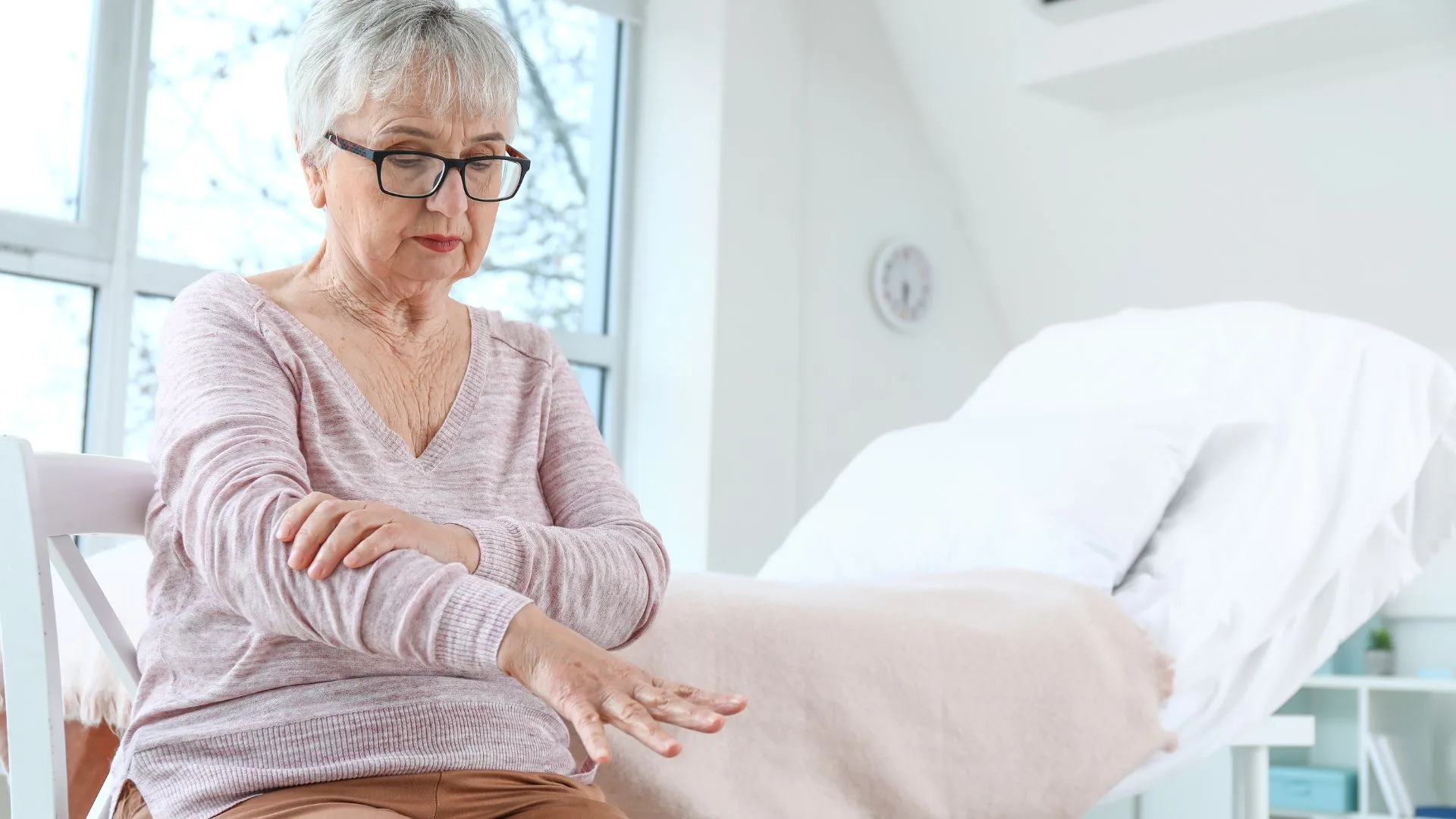
Parkinson’s disease (PD) is a chronic and progressive neurological disorder that primarily affects movement. It occurs when certain nerve cells in the brain that produce dopamine (a chemical messenger) become damaged or die. Dopamine is essential for smooth, coordinated muscle movements. As dopamine levels drop, movement becomes more difficult, and other symptoms may develop.
Common Symptoms of Parkinson’s
Motor Symptoms
- Tremor (shaking) at rest
- Slowness of movement (bradykinesia)
- Muscle stiffness (rigidity)
- Balance problems and frequent falls
- Small, shuffling steps or freezing when walking
Non-Motor Symptoms:
- Fatigue
- Constipation
- Depression and anxiety
- Sleep disturbances
- Cognitive changes (memory, attention)
- Loss of smell or soft voice
Diagnosis
There is no single test for Parkinson’s disease. Diagnosis is made based on:
- Detailed medical history
- A neurological exam
- Observation of symptoms and response to medication
- Ruling out other conditions through imaging or labs, if needed
Treatment Options
Parkinson’s is not curable, but it can be managed effectively with a combination of medication, therapy, and lifestyle support. Each treatment plan is customized to your needs and may evolve over time.
1. Medication Options
Common medications include:
- Levodopa/Carbidopa – most effective for motor symptoms
- Dopamine agonists (e.g., pramipexole, ropinirole)
- MAO-B inhibitors (e.g., rasagiline, selegiline)
- COMT inhibitors (e.g., entacapone) – extends levodopa effects
- Amantadine – for tremor or dyskinesia (involuntary movements)
Side effects to watch for: nausea, dizziness, sleepiness, confusion, hallucinations
2. Therapies & Lifestyle Management
- Physical therapy – for strength, balance, and mobility
- Occupational therapy – to adapt your home and daily tasks
- Speech therapy – to improve voice, speech, and swallowing
- Exercise – walking, stretching, dance, or Tai Chi improve mobility
- Nutrition – a balanced diet supports energy and medication absorption
- Mental health – counseling and support groups help with mood changes
3. Advanced Therapies
- Deep Brain Stimulation (DBS): a surgical option that can reduce tremor and “off” time
- Duopa (Levodopa gel infusion): for continuous medication delivery
- Clinical trials may offer access to emerging therapies
At NeuroMotion, we provide:
- Virtual care with movement disorder specialists
- Customized treatment and safety plans
- Regular symptom monitoring and medication review
- Referrals to therapy professionals and home safety resources
- Compassionate support for both patients and caregivers
Let's Move Forward Together
If you or a loved one has been diagnosed with Parkinson’s, don’t face it alone. Our NeuroMotion Telehealth team provides expert care, education, and guidance—all from the comfort of your home.
